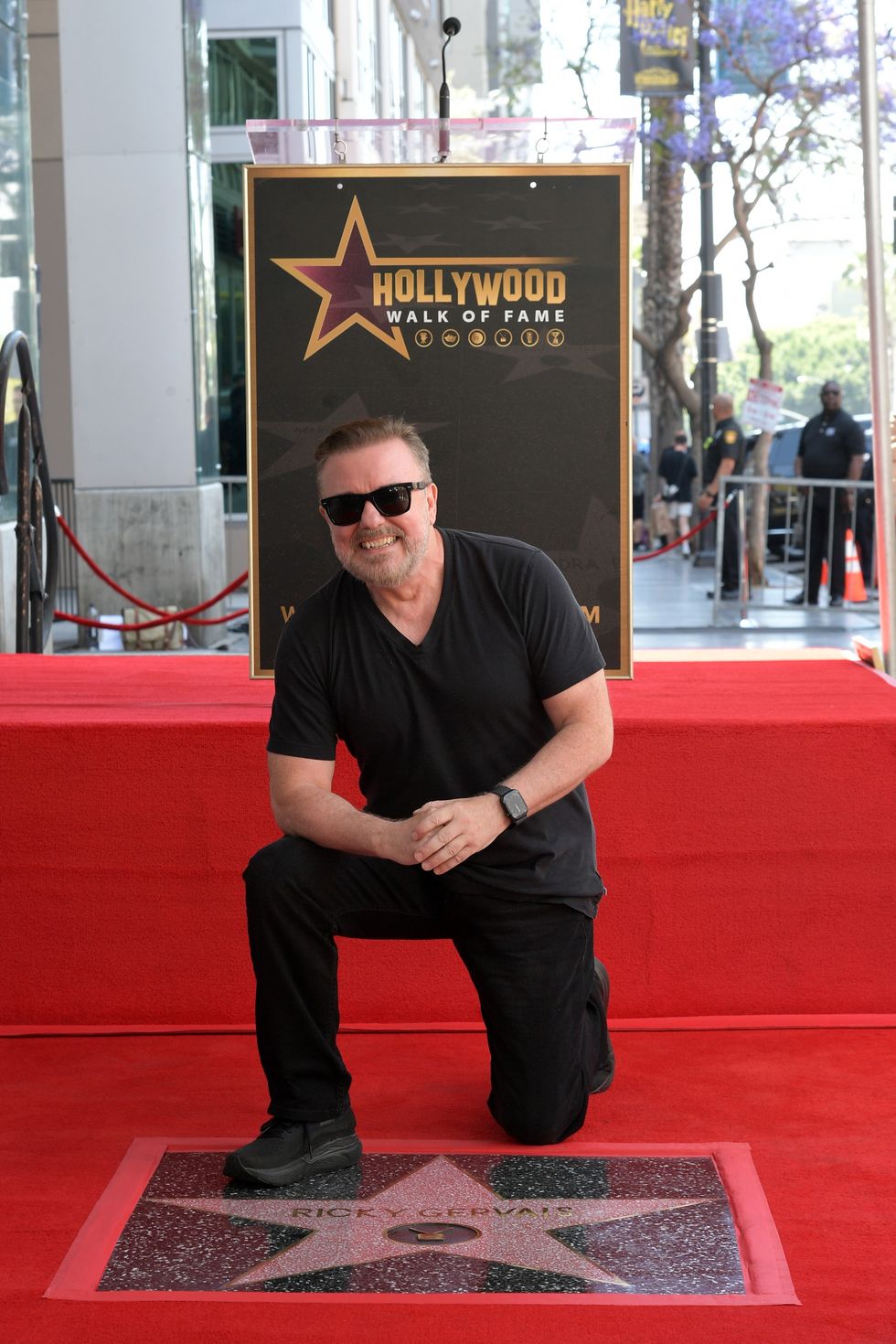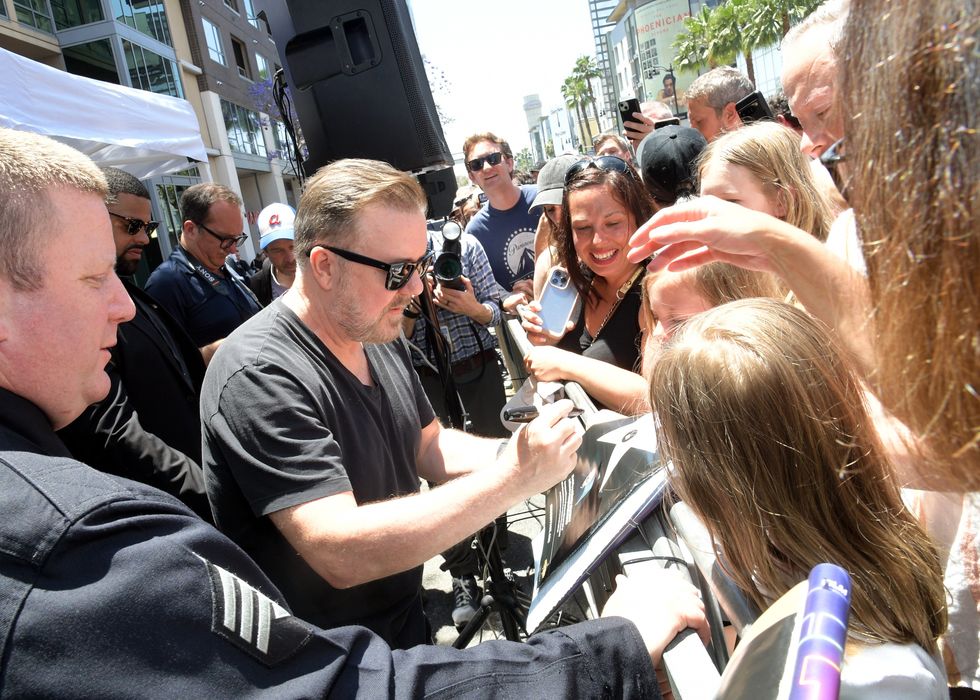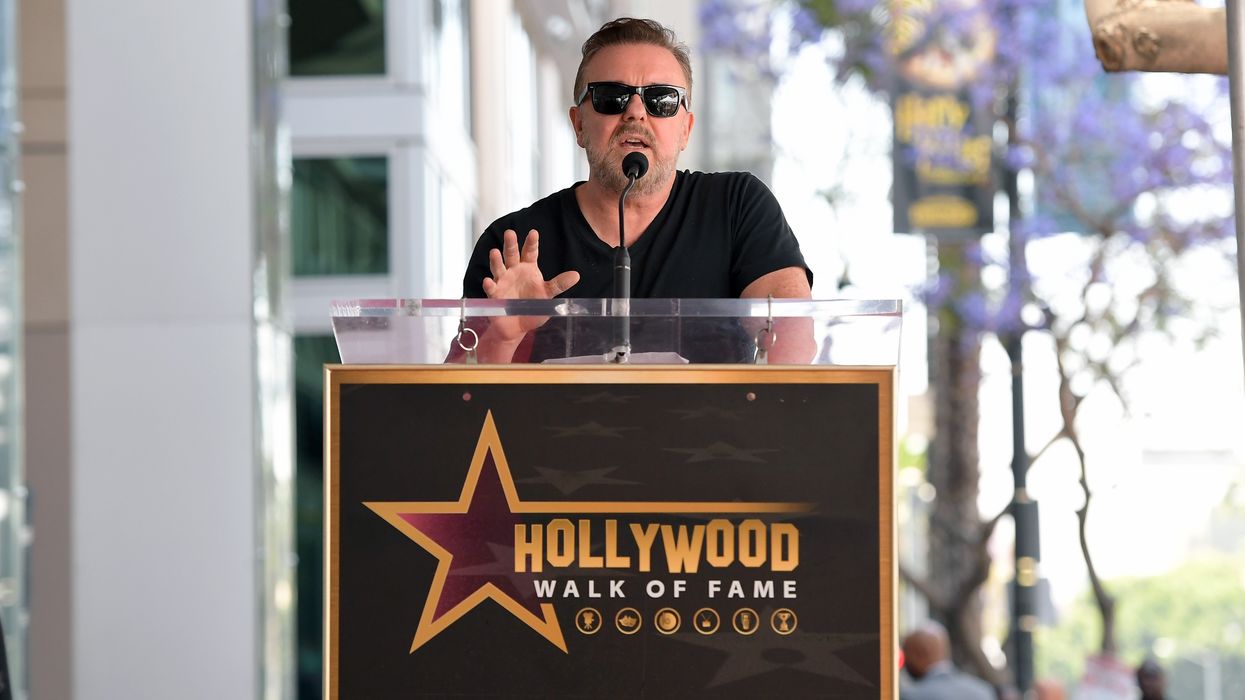Ricky Gervais now has his own star on the Hollywood Walk of Fame, but it wouldn’t be a Ricky moment without a few jabs that made the room a bit tense. Known for pushing buttons with his jokes, the 63-year-old comedian didn’t hold back during his acceptance speech, which mixed dry humour with some edgy digs.
Looking around at the star-studded pavement, he jokingly pointed out some controversial names, including Michael Jackson, Bill Cosby, and Fatty Arbuckle, all of whom have faced serious allegations. Gervais, with a smirk, seemed to be making a comment on how celebrity and scandal often go hand in hand, especially in a place like Hollywood.

But beneath the usual sarcasm, Gervais did show a bit of sincerity. He said the honour left him “humbled” and credited his success to “luck, persistence, and going against the grain.” True to form, he also joked about his casual outfit, saying he wasn’t trying to be edgy, he just didn’t own a suit that fit.
The comedian’s place on the Walk marks him as the 2,813th inductee, joining names from Bob Marley to Stevie Wonder. His long career includes hits like The Office, Derek, and After Life, and he’s picked up multiple Emmys, BAFTAs, and Golden Globes along the way, the latter of which he’s hosted in infamous fashion.

Controversy has never been far behind him. His Netflix special Armageddon drew backlash even before release, with thousands signing a petition over jokes targeting terminally ill children. But Gervais brushed it off, saying people were reacting to headlines, not the actual performance. “They’re hecklers,” he said in an interview, dismissing the outrage as manufactured.
He’s defended his comedy by insisting it’s never personal and is just ideas explored through humour. “People often confuse the topic of a joke with its target,” he explained. His work, including darker series like After Life, often circles around deeper themes like death, grief, and morality, all wrapped in wit.

Whether you find him sharp or just plain insensitive, Ricky Gervais doesn’t plan to change his approach. He believes comedy should provoke, even if it ruffles feathers. And now, with a star on Hollywood Boulevard, he’s left a permanent mark, both on the pavement and the industry.





